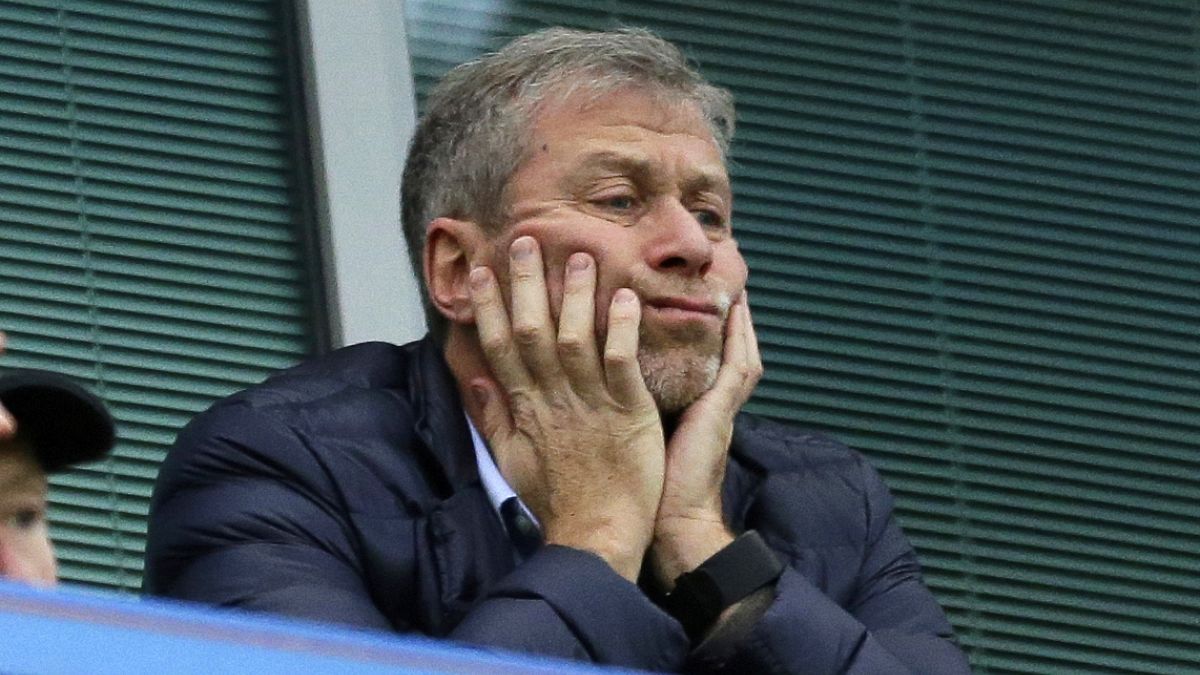The sanctioned Russian billionaire and at least two members of the Ukrainian team were targeted in Kyiv in early March, according to the Wall Street Journal and the investigative site Bellingcat.
Russia has played down reports that oligarch Roman Abramovich and Ukrainian peace negotiators were the victims of a suspected poisoning earlier in March.
The sanctioned Russian billionaire and at least two senior members of the Ukrainian team were affected after a meeting in Kyiv, according to the Wall Street Journal and the investigative site Bellingcat.
The WSJ report said their symptoms included red eyes, constant and painful tearing, and peeling skin on their faces and hands. Their conditions have since improved and their lives are not reported to be in danger.
Bellingcat said the symptoms were consistent with poisoning with chemical weapons. It said the trio suffered effects after attending talks on the afternoon of March 3.
On Tuesday, Moscow dismissed the reported poisoning as part of an "information war".
The Ukrainian negotiators affected are said to have included Crimean Tatar lawmaker Rustem Umerov.
Umerov has since tweeted to say he is "fine", adding: "Please do not trust any unverified information. We have an informational war ongoing as well."
The Kremlin has acknowledged that Abramovich played an early role in peace talks between Russia and Ukraine, but that the two teams have since taken over negotiations.
Abramovich was asked to mediate by Ukraine because of his background in Russia, where he made his fortune in the chaotic period of post-Communist privatisations in the 1990s.
He is believed to have been travelling between Russia and Ukraine to help mediate talks between governments to end the war, and was seen at an airport in Israel on March 14.
He was later pictured alongside a spokesperson Turkish President Recep Tayyip Erdogan during Tuesday's fresh talks.
It is not known who might have been behind the alleged attempted poisoning, but one theory is that it might have been the work of hardliners who wanted the talks to fail and sent an appropriate message.
The oligarch and owner of Chelsea Football Club is considered close to Russian President Vladimir Putin and has already been targeted by EU and UK sanctions in the wake of Russia's invasion of Ukraine.
Roman Abramovich’s spokesperson has said he was not sure who might have targeted the group.
Bellingcat said the adverse effects the negotiators suffered were “most likely the result of international poisoning with an undefined chemical weapon” – possibly contained in chocolate or water.
It added that the objective most likely was intended to scare the victims as opposed to cause permanent damage.
A US official has meanwhile told Reuters that intelligence suggests Abramovich and Ukrainian peace negotiators fell ill due to an "environmental factor", not poisoning.
Russia has been implicated in several high-profile poisonings of Kremlin opponents.
Ex-KGB officer Alexander Litvinenko was killed by radioactive polonium-210 poisoning in London in 2006. A UK inquiry found that President Putin "probably approved" the operation, and last year the European Court of Human Rights held Russia responsible.
The UK and its allies blamed Moscow for the 2018 poisoning of former Russian spy Sergei Skripal and his daughter Yulia, who were targeted with the Novichok nerve agent in the English town of Salisbury. A British woman died after coming into contact with the substance.
In 2020 Russian opposition leader Alexei Navalny — now in jail in Russia — spent months in a German hospital after falling ill on an internal flight in Russia. The German government confirmed that laboratory tests found he had been poisoned with a Novichok-group nerve agent.
